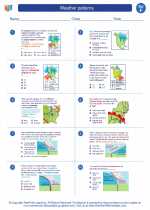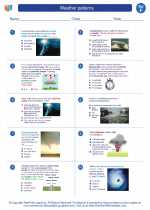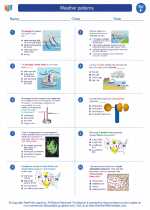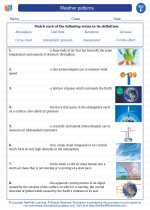Weather patterns -> environmental technology
Introduction to Environmental Technology
Environmental technology involves the development and implementation of innovative solutions to environmental problems. It encompasses various areas such as pollution control, waste management, renewable energy, and sustainable agriculture.
Key Concepts
- Pollution Control: Understanding the different types of pollution and methods to mitigate their impact on the environment.
- Waste Management: Strategies for reducing, recycling, and safely disposing of various types of waste.
- Renewable Energy: Exploring alternative sources of energy such as solar, wind, and hydroelectric power to reduce reliance on non-renewable resources.
- Sustainable Agriculture: Practices that promote efficient use of resources, minimize environmental impact, and support ecosystem health.
Technologies and Innovations
Environmental technology encompasses a wide range of innovative solutions, including:
- Air Pollution Control: Technologies such as scrubbers, catalytic converters, and electrostatic precipitators to reduce emissions from industrial processes and vehicles.
- Water Treatment: Methods for purifying water and wastewater, including filtration, disinfection, and desalination technologies.
- Renewable Energy Systems: Solar panels, wind turbines, and hydroelectric generators for harnessing clean, sustainable energy sources.
- Bioremediation: The use of microorganisms to clean up contaminated soil and water by breaking down pollutants.
Importance of Environmental Technology
Environmental technology plays a crucial role in addressing global environmental challenges and promoting sustainable development. It helps to minimize the impact of human activities on the environment, protect natural resources, and support the well-being of current and future generations.
Study Tips
- Understand the basic principles of environmental science and ecology.
- Stay updated on emerging environmental technologies and their potential impact on the environment.
- Explore case studies and real-world examples of successful environmental technology applications.
- Engage in hands-on activities such as waste audits, energy audits, and environmental monitoring to gain practical experience.
- Consider the ethical and social implications of environmental technology, including issues of equity, access, and environmental justice.
◂Science Worksheets and Study Guides Sixth Grade. Weather patterns
Study Guide Weather patterns
Weather patterns  Worksheet/Answer key
Worksheet/Answer key Weather patterns
Weather patterns  Worksheet/Answer key
Worksheet/Answer key Weather patterns
Weather patterns  Worksheet/Answer key
Worksheet/Answer key Weather patterns
Weather patterns  Vocabulary/Answer key
Vocabulary/Answer key Weather patterns
Weather patterns  Vocabulary/Answer key
Vocabulary/Answer key Weather patterns
Weather patterns  Vocabulary/Answer key
Vocabulary/Answer key Weather patterns
Weather patterns  Vocabulary/Answer key
Vocabulary/Answer key Weather patterns
Weather patterns 

 Worksheet/Answer key
Worksheet/Answer key
 Worksheet/Answer key
Worksheet/Answer key
 Worksheet/Answer key
Worksheet/Answer key
 Vocabulary/Answer key
Vocabulary/Answer key
 Vocabulary/Answer key
Vocabulary/Answer key
 Vocabulary/Answer key
Vocabulary/Answer key
 Vocabulary/Answer key
Vocabulary/Answer key

The resources above cover the following skills:
EARTH AND SPACE SCIENCE
Earth’s Systems
Integrate qualitative scientific and technical information (e.g., weather maps; diagrams; other visualizations, including radar and computer simulations) to support the claim that motions and complex interactions of air masses result in changes in weather conditions.